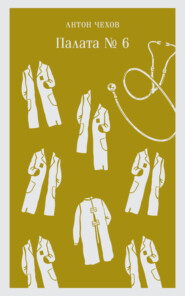По всем вопросам обращайтесь на: info@litportal.ru
(©) 2003-2024.
✖
The Bishop and Other Stories
Настройки чтения
Размер шрифта
Высота строк
Поля
"Father Fyodor, do me one more kindness: bid them give me at leave-taking.. one little glass of vodka."
"It's not the time to drink vodka now," said his Reverence sternly.
"One must have some regard for decency."
Father Anastasy was still more overwhelmed by confusion; he laughed, and, forgetting his resolution to go away, he dropped back on his chair. His Reverence looked at his helpless, embarrassed face and his bent figure and he felt sorry for the old man.
"Please God, we will have a drink to-morrow," he said, wishing to soften his stem refusal. "Everything is good in due season."
His Reverence believed in people's reforming, but now when a feeling of pity had been kindled in him it seemed to him that this disgraced, worn-out old man, entangled in a network of sins and weaknesses, was hopelessly wrecked, that there was no power on earth that could straighten out his spine, give brightness to his eyes and restrain the unpleasant timid laugh which he laughed on purpose to smoothe over to some slight extent the repulsive impression he made on people.
The old man seemed now to Father Fyodor not guilty and not vicious, but humiliated, insulted, unfortunate; his Reverence thought of his wife, his nine children, the dirty beggarly shelter at Zyavkin's; he thought for some reason of the people who are glad to see priests drunk and persons in authority detected in crimes; and thought that the very best thing Father Anastasy could do now would be to die as soon as possible and to depart from this world for ever.
There were a sound of footsteps.
"Father Fyodor, you are not resting?" a bass voice asked from the passage.
"No, deacon; come in."
Orlov's colleague, the deacon Liubimov, an elderly man with a big bald patch on the top of his head, though his hair was still black and he was still vigorous-looking, with thick black eyebrows like a Georgian's, walked in. He bowed to Father Anastasy and sat down.
"What good news have you?" asked his Reverence.
"What good news?" answered the deacon, and after a pause he went on with a smile: "When your children are little, your trouble is small; when your children are big, your trouble is great. Such goings on, Father Fyodor, that I don't know what to think of it. It's a regular farce, that's what it is."
He paused again for a little, smiled still more broadly and said:
"Nikolay Matveyitch came back from Harkov to-day. He has been telling me about my Pyotr. He has been to see him twice, he tells me."
"What has he been telling you, then?"
"He has upset me, God bless him. He meant to please me but when I came to think it over, it seems there is not much to be pleased at. I ought to grieve rather than be pleased.. 'Your Petrushka,' said he, 'lives in fine style. He is far above us now,' said he. 'Well thank God for that,' said I. 'I dined with him,' said he, 'and saw his whole manner of life. He lives like a gentleman,' he said; 'you couldn't wish to live better.' I was naturally interested and I asked, 'And what did you have for dinner?' 'First,' he said, 'a fish course something like fish soup, then tongue and peas,' and then he said, 'roast turkey.' 'Turkey in Lent? that is something to please me,' said I. 'Turkey in Lent? Eh?'"
"Nothing marvellous in that," said his Reverence, screwing up his eyes ironically. And sticking both thumbs in his belt, he drew himself up and said in the tone in which he usually delivered discourses or gave his Scripture lessons to the pupils in the district school: "People who do not keep the fasts are divided into two different categories: some do not keep them through laxity, others through infidelity. Your Pyotr does not keep them through infidelity. Yes."
The deacon looked timidly at Father Fyodor's stern face and said:
"There is worse to follow… We talked and discussed one thing and another, and it turned out that my infidel of a son is living with some madame, another man's wife. She takes the place of wife and hostess in his flat, pours out the tea, receives visitors and all the rest of it, as though she were his lawful wife. For over two years he has been keeping up this dance with this viper. It's a regular farce. They have been living together for three years and no children."
"I suppose they have been living in chastity!" chuckled Father
Anastasy, coughing huskily. "There are children, Father Deacon —
there are, but they don't keep them at home! They send them to the
Foundling! He-he-he!." Anastasy went on coughing till he choked.
"Don't interfere, Father Anastasy," said his Reverence sternly.
"Nikolay Matveyitch asked him, 'What madame is this helping the soup at your table?'" the deacon went on, gloomily scanning Anastasy's bent figure. "'That is my wife,' said he. 'When was your wedding?' Nikolay Matveyitch asked him, and Pyotr answered, 'We were married at Kulikov's restaurant.'"
His Reverence's eyes flashed wrathfully and the colour came into his temples. Apart from his sinfulness, Pyotr was not a person he liked. Father Fyodor had, as they say, a grudge against him. He remembered him a boy at school – he remembered him distinctly, because even then the boy had seemed to him not normal. As a schoolboy, Petrushka had been ashamed to serve at the altar, had been offended at being addressed without ceremony, had not crossed himself on entering the room, and what was still more noteworthy, was fond of talking a great deal and with heat – and, in Father Fyodor's opinion, much talking was unseemly in children and pernicious to them; moreover Petrushka had taken up a contemptuous and critical attitude to fishing, a pursuit to which both his Reverence and the deacon were greatly addicted. As a student Pyotr had not gone to church at all, had slept till midday, had looked down on people, and had been given to raising delicate and insoluble questions with a peculiarly provoking zest.
"What would you have?" his Reverence asked, going up to the deacon and looking at him angrily. "What would you have? This was to be expected! I always knew and was convinced that nothing good would come of your Pyotr! I told you so, and I tell you so now. What you have sown, that now you must reap! Reap it!"
"But what have I sown, Father Fyodor?" the deacon asked softly, looking up at his Reverence.
"Why, who is to blame if not you? You're his father, he is your offspring! You ought to have admonished him, have instilled the fear of God into him. A child must be taught! You have brought him into the world, but you haven't trained him up in the right way. It's a sin! It's wrong! It's a shame!"
His Reverence forgot his exhaustion, paced to and fro and went on talking. Drops of perspiration came out on the deacon's bald head and forehead. He raised his eyes to his Reverence with a look of guilt, and said:
"But didn't I train him, Father Fyodor? Lord have mercy on us, haven't I been a father to my children? You know yourself I spared nothing for his good; I have prayed and done my best all my life to give him a thorough education. He went to the high school and I got him tutors, and he took his degree at the University. And as to my not being able to influence his mind, Father Fyodor, why, you can judge for yourself that I am not qualified to do so! Sometimes when he used to come here as a student, I would begin admonishing him in my way, and he wouldn't heed me. I'd say to him, 'Go to church,' and he would answer, 'What for?' I would begin explaining, and he would say, 'Why? what for?' Or he would slap me on the shoulder and say, 'Everything in this world is relative, approximate and conditional. I don't know anything, and you don't know anything either, dad.'"
Father Anastasy laughed huskily, cleared his throat and waved his fingers in the air as though preparing to say something. His Reverence glanced at him and said sternly:
"Don't interfere, Father Anastasy."
The old man laughed, beamed, and evidently listened with pleasure to the deacon as though he were glad there were other sinful persons in this world besides himself. The deacon spoke sincerely, with an aching heart, and tears actually came into his eyes. Father Fyodor felt sorry for him.
"You are to blame, deacon, you are to blame," he said, but not so sternly and heatedly as before. "If you could beget him, you ought to know how to instruct him. You ought to have trained him in his childhood; it's no good trying to correct a student."
A silence followed; the deacon clasped his hands and said with a sigh:
"But you know I shall have to answer for him!"
"To be sure you will!"
After a brief silence his Reverence yawned and sighed at the same moment and asked:
"Who is reading the 'Acts'?"
"Yevstrat. Yevstrat always reads them."
The deacon got up and, looking imploringly at his Reverence, asked:
"Father Fyodor, what am I to do now?"
"Do as you please; you are his father, not I. You ought to know best."
"I don't know anything, Father Fyodor! Tell me what to do, for goodness' sake! Would you believe it, I am sick at heart! I can't sleep now, nor keep quiet, and the holiday will be no holiday to me. Tell me what to do, Father Fyodor!"
"Write him a letter."
"What am I to write to him?"
"Write that he mustn't go on like that. Write shortly, but sternly and circumstantially, without softening or smoothing away his guilt. It is your parental duty; if you write, you will have done your duty and will be at peace."
"That's true. But what am I to write to him, to what effect? If I write to him, he will answer, 'Why? what for? Why is it a sin?'"

















